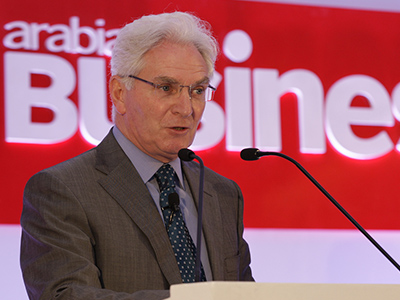This interview was given to Arabian Business magazine (Arabic) and can be accessed fully here.
This was partially reported in Arabian Business (English); the article is posted below.
GCC countries are currently studying the elimination of the current unified customs tax and replacing it with the VAT and Specific taxes due at the beginning of 2018, according to Dr Nasser Al Saidi, renowned economist and founder and president of Nasser Saidi & Associates.
Al Saidi told Arabian Business that the GCC countries are also studying the introduction of a 10 percent tax on business profits, while noting that Qatar currently implements such a tax and the UAE imposes a 20 percent tax on the profits of foreign banks.
But Al Saidi foresees no huge impact accompanying the introduction of the 5 percent VAT tax. The GCC states however are expected to raise the VAT tax to 10 percent within the coming 4 to 5 years, he added.
“The GCC countries commits to agreements with WTO that imposes on its members to eliminate trade taxes (customs taxes) and to replace them with local taxes such as VAT and Specific taxes. IMF also recommended the elimination of special fees that prolong periods of establishing companies and businesses,” he explained.
He said that although the IMF gave no clear answers to questions on the possible elimination of the unified customs taxes, Tim Callen, assistant director, Middle East and Central Asia Department, said: “While there may be benefits of eliminating customs duties, other revenue sources would need to be introduced if governments are to move toward their fiscal policy goals. GCC countries could move to reduce or eliminate customs duties, but if they do so they will lose a source of government revenue. If customs duties are eliminated and the VAT is introduced at 5 percent, the net positive impact on government revenues would be quite small.”
As a result of the possible elimination of customs duties, some experts expect the GCC states to either resort to downsizing customs staff or shift employees to departments handling the new tax system.
While Al Saidi is foreseeing a shift in employees, Callen said IMF suggested to a number of GCC countries that they undertake a review of the size and structure of civil service to make sure it is in line with what is needed to provide the services the government wants. Decisions about future staffing needs could then to be taken within such a framework.
“Staff in the tax authorities will need training and depending on the current staffing structure, new staff may need to be hired. Also, businesses will need to be given time to train their staff in how to implement the VAT,” he noted.
Callen also did not give a specific answer on whether the GCC states could possibly raise the VAT tax in the future but said: “whether it is increased in the future will be up to the countries and will at least in part be determined by their future revenue needs. At 5 percent, the VAT rate in the GCC will be very low by global standards and there is certainly scope for it to be increased over time without it looking too high from a global perspective.”






